





 Unofficial Transcript
Unofficial Transcript  Work Sample
Work Sample  Video Assignment
Video Assignment  1 Recommendation
1 Recommendation  Online Application From
Online Application From  Application Fee
Application Fee 


Application is closed


Stanford Summer Humanities Institute is a three-week residential program where rising high school juniors and seniors explore the big questions at the heart of the humanities in seminars led by Stanford professors and graduate students.
 Non-credit
Non-credit
 Residential
Residential
Become a Humanities Scholar
Grow as a scholar, writer, and global citizen this summer. Stanford Summer Humanities Institute empowers participants to gain a better sense of the world through exploring the humanities. Participants will engage with the breadth of topics within the humanities, from politics to literature to philosophy.
Live in a vibrant, intellectual community on Stanford University’s campus for three weeks.
Stanford Faculty
Stanford professors lead all of the courses with talented graduate students, sharing their expertise and passions with participants.
Passionate Peers
Study alongside fellow participants interested in better understanding contemporary society and global history.
Unique Courses
Participants will be admitted to one of the courses they ranked in their application. These courses will offer in depth exploration of the stated topic. Course topics range from the American Enlightenment, ancient Greek philosophy, film, the repatriation of museum-held artifacts, and more.
Discover Academic Freedom
Explore the humanities at a college level, investigate philosophical questions, and pursue exciting research topics that are chosen by each participant.
2023 Summer Humanities Courses
Courses meet each weekday (Monday–Friday) from 9:00am to 11:30am PST for faculty-led sessions that include lecture, small group discussions, and individual work.
2023 Summer Humanities Courses
Courses meet each weekday (Monday–Friday) from 9:00am to 11:30am PST for faculty-led sessions that include lecture, small group discussions, and individual work.
The Greeks and Beyond
Through readings from the foundational works in the ancient Greek philosophical tradition, as well as modern and contemporary philosophy, this course explores questions concerning knowledge, love, identity, and death.
Revolutions
“Revolutions are the locomotives of history,” wrote Karl Marx. As the ongoing turmoil of the Middle East reminds us, revolutions have the power to reshape the political order of the world more than any other social, economic, or cultural forces. Most states today were born out of a revolution. But what exactly is a revolution?
Ancient Rome and Its Legacies
In this course we will study aspects of this historical phenomenon: read many of its most famous texts, reflect on how the Romans thought of themselves and others, trace the history of one of its texts, considered most dangerous by some, follow its rise and fall as an empire, and remark throughout on how different it is from Western societies today, even though the latter are profoundly indebted to it.
The American Enlightenment
The American Enlightenment spanned the years roughly 1770 to 1820, some of the most exciting and tumultuous in American and European history. During this half century, such world-changing events as the American, Haitian, and French Revolutions, and the transatlantic Enlightenment stretched people's thinking into many new and unexpected directions.
Racial Identity in the American Imagination
From Sally Hemings to Barack Obama, this course explores the ways that racial identity has been experienced, represented, and contested throughout American history. Engaging historical, legal, and literary texts and films, we will examine the major historical transformations that have shaped our understandings of racial identity.
Film and Philosophy
What makes you the individual you are? Should you plan your life, or make it up as you go along? Is it always good to remember your past? Is it always good to know the truth? When does a machine become a person? What do we owe to other people? Is there always a right way to act? How can we live in a highly imperfect world? And what can film do that other media can’t?
Who Owns the Past? African Museum Collections in the Bay Area
The colonial era saw widespread extraction of cultural treasures by European powers across the globe. Greece, Egypt, and other countries have maintained that these objects belong at home rather than in the museums of London, Paris, and New York. This class invites you to consider the role of African art in debates about ownership, access, and aesthetics. Stanford University, for example, has a large collection of African objects in the Cantor Museum, while in nearby San Francisco, the renowned De Young Museum has a significant selection in its Africa gallery.
Magical Realism: One Hundred Years of Solitude
What is “magical realism”? Is it a genre, a style, a label for elaborated fiction from the Third World? How does magical realism, a globalized phenomenon, reflect upon globalization itself?
On-campus, residential
Housing
Participants are housed with other Summer Humanities Institute students in residences used by Stanford undergraduates during the academic year. Trained residential staff live in the residences with the participants to create safe and welcoming communities.
Rooms are assigned by gender, with male and female participants in separate areas of the residences, and typically on separate floors. We are committed to providing an inclusive, supportive, and comfortable residential environment for all participants, and gender-inclusive housing assignments can be provided.
Activities
The daily schedule includes a variety of workshops and recreational activities in the afternoon to expand the education that takes place outside of the classroom. These activities are intended to provide participants with new skills, exercise, and community building. Activities are designed for a variety of interests and energy levels.
Examples of evening and weekend activities include a talent show, a firepit night, and visiting a local farmer’s market.
Field Trips
Weekend field trips enrich the academic experience and provide an opportunity to socialize with your peers outside of the classroom. Transportation, lunch, and entrance fees (if applicable) are included for all participants.
Students in grades 10–11 at the time of application submission are eligible.
 Unofficial Transcript
Unofficial Transcript
 Work Sample
Work Sample
 Video Assignment
Video Assignment
 1 Recommendation
1 Recommendation
 Online Application From
Online Application From
 Application Fee
Application Fee
In addition to the online application form, a complete application includes:
Academic Records
We require unofficial transcripts for each school or academic program from which you earned grades (such as letter or numerical grades) from Fall 2020 through Fall 2022. If you have multiple grade reports from one school, rather than one transcript from that school, please combine that into a single file for upload. Homeschooled applicants should submit a document similar to a transcript with their coursework from the years listed above. Homeschooled students should also submit transcripts from any graded courses they took with a school or program during this period.
Work Sample(s)
One sample of student work in the humanities or social sciences will be required. The work sample must have been completed as a school assignment within the past year and must demonstrate a student’s best effort. Though not required, your sample should show graded work and the prompt or directions. No work sample older than two years will be accepted. Suggested samples include: analytical essays, persuasive essays, or research papers. Please limit the sample to five pages of content in addition to any directions or grading sheets.
Teacher Recommendation
We require one online recommendation form from a teacher of English, history, or social science.
Video Essay (Optional)
This video essay is an opportunity to share more about your interest in our program. You can consider it a conversation between you and our Admissions Committee. If you attend a school in which the primary language of instruction is a language other than English, we strongly encourage you to complete the video essay.
$65 Application Fee
You may submit the $65 application fee online using a credit card. Please see instructions for payment at the end of the Online Application. Fee waivers can be provided if qualifications are met.
Deadline
There is one round of admissions to Stanford Summer Humanities Institute this summer. All applications should be submitted by the stated deadline.
 Jun 25 - Jul 14
Jun 25 - Jul 14
 3 weeks
3 weeks
 Jul 16 - Aug 04
Jul 16 - Aug 04
 3 weeks
3 weeks
The tuition covers the following: housing in Stanford residence halls, meals each day, daily activities, and field trip costs. Please note that tuition does not include airfare, and incidental purchases, computers, clothes, school supplies, or toiletries.
Housing & Meals
Participants live on campus in supervised Stanford residence halls. Tuition includes meals in Stanford dining halls and housing on campus at no additional charge. Participants receive linens and towels as part of their housing.
Instruction & Course Materials
We provide the necessary supplies for each of our courses and activities. This also includes transportation and fees for academic field trips. Participants are expected to provide their own computers during the program.
Field Trips
Field trips to exciting cultural attractions in the San Francisco Bay Area are scheduled during the weekends.
Transportation Between Stanford & SFO
Transportation is provided between Stanford University and the San Francisco International Airport (SFO) at select times on arrival and departure days.
Financial Aid
Stanford Pre-Collegiate Studies is committed to making our programs accessible for students around the world. We believe finances should not create obstacles to high quality pre-collegiate education. Financial aid is granted based upon demonstrated financial need. Aid is open to all applicants and applying for financial aid does not have an effect on your admissions decision.




 Unofficial Transcript
Unofficial Transcript
 Work Sample
Work Sample
 Video Assignment
Video Assignment
 1 Recommendation
1 Recommendation
 Online Application From
Online Application From
 Application Fee
Application Fee



Application is closed

Useful Resources






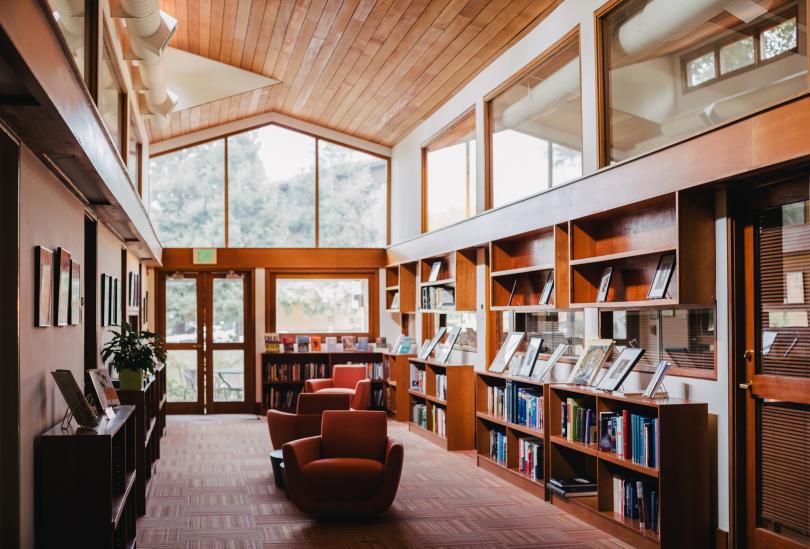
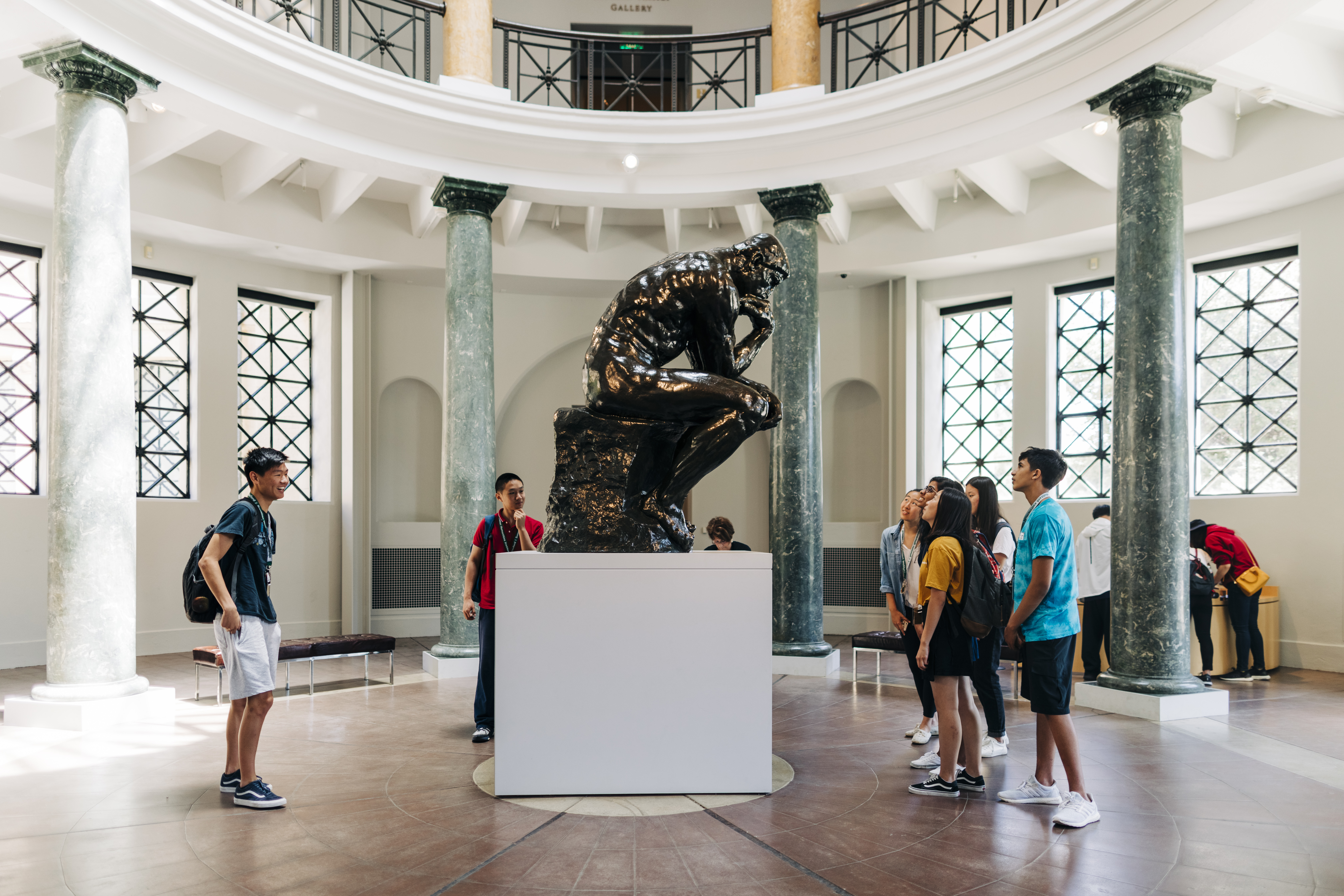
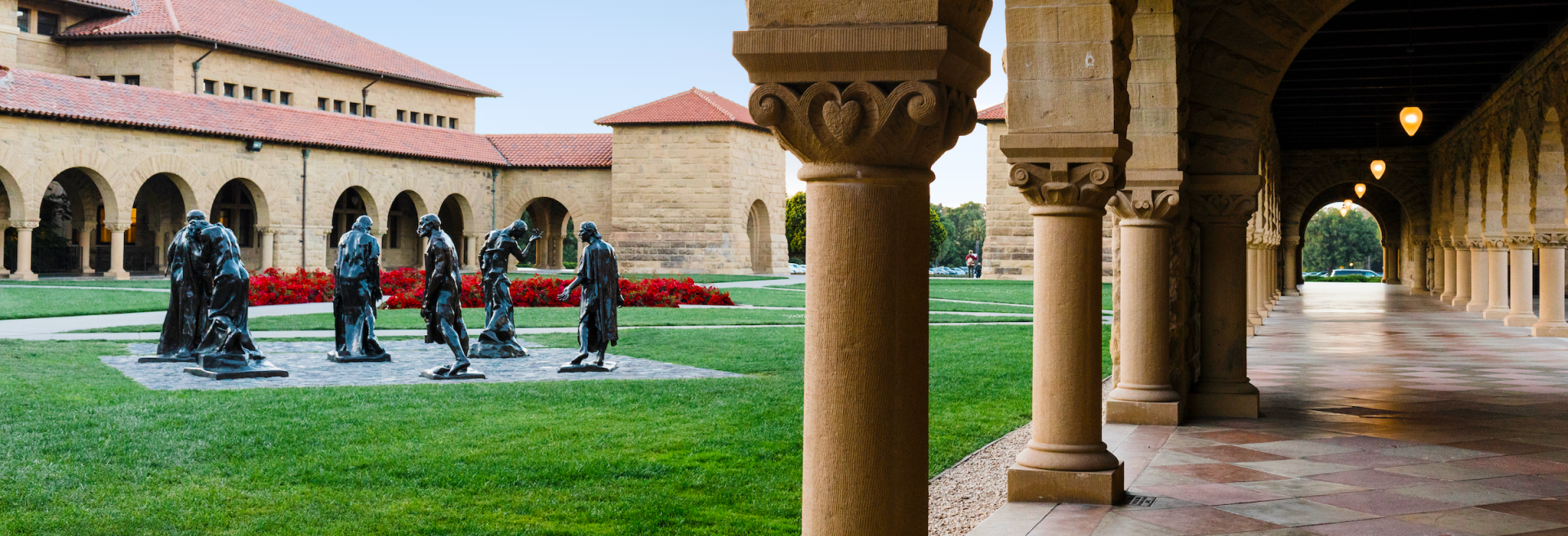

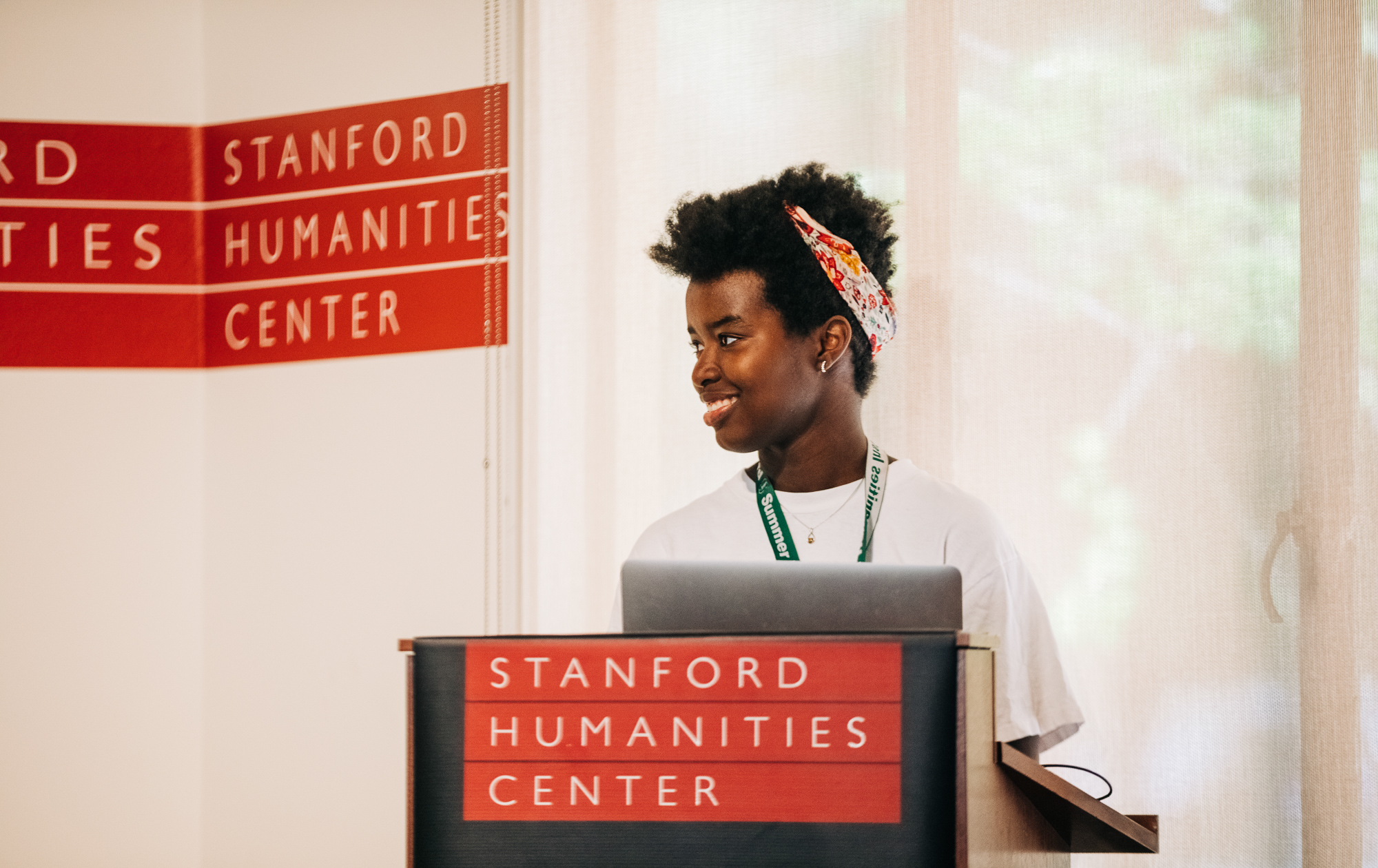







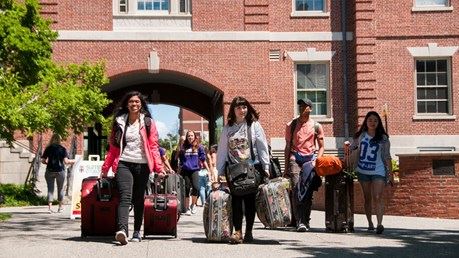

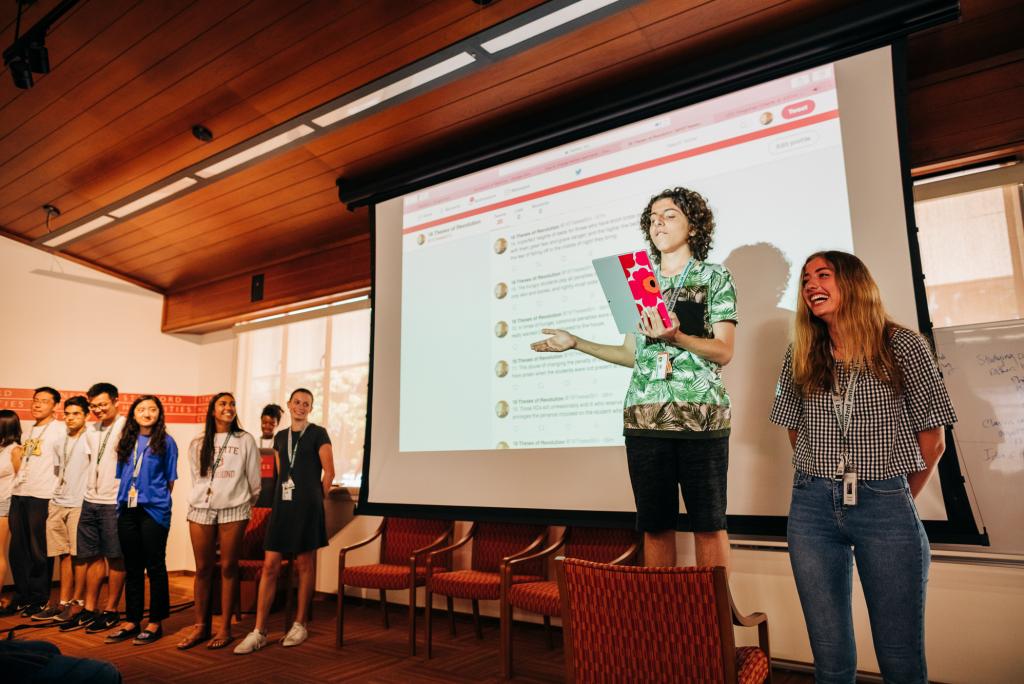


Tell us your
opinion about us